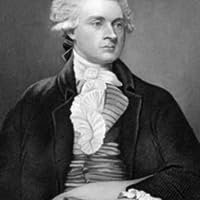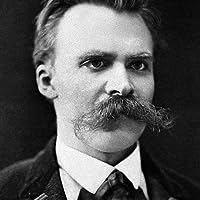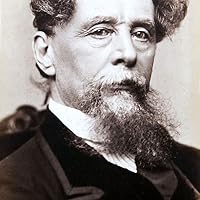New Testament Quotes
Quotes tagged as "new-testament"
Showing 1-30 of 101

“4. Religion. Your reason is now mature enough to examine this object. In the first place, divest yourself of all bias in favor of novelty & singularity of opinion... shake off all the fears & servile prejudices, under which weak minds are servilely crouched. Fix reason firmly in her seat, and call to her tribunal every fact, every opinion. Question with boldness even the existence of a God; because, if there be one, he must more approve of the homage of reason, than that of blindfolded fear. You will naturally examine first, the religion of your own country. Read the Bible, then as you would read Livy or Tacitus. The facts which are within the ordinary course of nature, you will believe on the authority of the writer, as you do those of the same kind in Livy and Tacitus. The testimony of the writer weighs in their favor, in one scale, and their not being against the laws of nature, does not weigh against them. But those facts in the Bible which contradict the laws of nature, must be examined with more care, and under a variety of faces. Here you must recur to the pretensions of the writer to inspiration from God. Examine upon what evidence his pretensions are founded, and whether that evidence is so strong, as that its falsehood would be more improbable than a change in the laws of nature, in the case he relates. For example in the book of Joshua we are told the sun stood still several hours. Were we to read that fact in Livy or Tacitus we should class it with their showers of blood, speaking of statues, beasts, &c. But it is said that the writer of that book was inspired. Examine therefore candidly what evidence there is of his having been inspired. The pretension is entitled to your inquiry, because millions believe it. On the other hand you are astronomer enough to know how contrary it is to the law of nature that a body revolving on its axis as the earth does, should have stopped, should not by that sudden stoppage have prostrated animals, trees, buildings, and should after a certain time have resumed its revolution, & that without a second general prostration. Is this arrest of the earth's motion, or the evidence which affirms it, most within the law of probabilities? You will next read the New Testament. It is the history of a personage called Jesus. Keep in your eye the opposite pretensions: 1, of those who say he was begotten by God, born of a virgin, suspended & reversed the laws of nature at will, & ascended bodily into heaven; and 2, of those who say he was a man of illegitimate birth, of a benevolent heart, enthusiastic mind, who set out without pretensions to divinity, ended in believing them, and was punished capitally for sedition, by being gibbeted, according to the Roman law, which punished the first commission of that offence by whipping, & the second by exile, or death in fureâ.
...Do not be frightened from this inquiry by any fear of its consequences. If it ends in a belief that there is no God, you will find incitements to virtue in the comfort and pleasantness you feel in its exercise, and the love of others which it will procure you... In fine, I repeat, you must lay aside all prejudice on both sides, and neither believe nor reject anything, because any other persons, or description of persons, have rejected or believed it... I forgot to observe, when speaking of the New Testament, that you should read all the histories of Christ, as well of those whom a council of ecclesiastics have decided for us, to be Pseudo-evangelists, as those they named Evangelists. Because these Pseudo-evangelists pretended to inspiration, as much as the others, and you are to judge their pretensions by your own reason, and not by the reason of those ecclesiastics. Most of these are lost...
[Letter to his nephew, Peter Carr, advising him in matters of religion, 1787]”
― Letters of Thomas Jefferson
...Do not be frightened from this inquiry by any fear of its consequences. If it ends in a belief that there is no God, you will find incitements to virtue in the comfort and pleasantness you feel in its exercise, and the love of others which it will procure you... In fine, I repeat, you must lay aside all prejudice on both sides, and neither believe nor reject anything, because any other persons, or description of persons, have rejected or believed it... I forgot to observe, when speaking of the New Testament, that you should read all the histories of Christ, as well of those whom a council of ecclesiastics have decided for us, to be Pseudo-evangelists, as those they named Evangelists. Because these Pseudo-evangelists pretended to inspiration, as much as the others, and you are to judge their pretensions by your own reason, and not by the reason of those ecclesiastics. Most of these are lost...
[Letter to his nephew, Peter Carr, advising him in matters of religion, 1787]”
― Letters of Thomas Jefferson

“Alcohol makes other people less tedious, and food less bland, and can help provide what the Greeks called entheos, or the slight buzz of inspiration when reading or writing. The only worthwhile miracle in the New Testament—the transmutation of water into wine during the wedding at Cana—is a tribute to the persistence of Hellenism in an otherwise austere Judaea. The same applies to the seder at Passover, which is obviously modeled on the Platonic symposium: questions are asked (especially of the young) while wine is circulated. No better form of sodality has ever been devised: at Oxford one was positively expected to take wine during tutorials. The tongue must be untied. It's not a coincidence that Omar Khayyam, rebuking and ridiculing the stone-faced Iranian mullahs of his time, pointed to the value of the grape as a mockery of their joyless and sterile regime. Visiting today's Iran, I was delighted to find that citizens made a point of defying the clerical ban on booze, keeping it in their homes for visitors even if they didn't particularly take to it themselves, and bootlegging it with great brio and ingenuity. These small revolutions affirm the human.”
― Hitch 22: A Memoir
― Hitch 22: A Memoir

“If we could believe that he [Jesus] really countenanced the follies, the falsehoods, and the charlatanism which his biographers [Gospels] father on him, and admit the misconstructions, interpolations, and theorizations of the fathers of the early, and the fanatics of the latter ages, the conclusion would be irresistible by every sound mind that he was an impostor... We find in the writings of his biographers matter of two distinct descriptions. First, a groundwork of vulgar ignorance, of things impossible, of superstitions, fanaticisms and fabrications... That sect [Jews] had presented for the object of their worship, a being of terrific character, cruel, vindictive, capricious and unjust... Jesus had to walk on the perilous confines of reason and religion: and a step to right or left might place him within the gripe of the priests of the superstition, a blood thirsty race, as cruel and remorseless as the being whom they represented as the family God of Abraham, of Isaac and of Jacob, and the local God of Israel. They were constantly laying snares, too, to entangle him in the web of the law... That Jesus did not mean to impose himself on mankind as the son of God, physically speaking, I have been convinced by the writings of men more learned than myself in that lore.
[Letter to William Short, 4 August, 1820]”
― Letters of Thomas Jefferson
[Letter to William Short, 4 August, 1820]”
― Letters of Thomas Jefferson

“So many things were testing his faith. There was the Bible, of course, but the Bible was a book, and so were Bleak House, Treasure Island, Ethan Frome and The Last of the Mohicans. Did it then seem probable, as he had once overheard Dunbar ask, that the answers to riddles of creation would be supplied by people too ignorant to understand the mechanics of rainfall? Had Almighty God, in all His infinite wisdom, really been afraid that men six thousand years ago would succeed in building a tower to heaven?”
― Catch-22
― Catch-22

“We think ourselves possessed, or at least we boast that we are so, of liberty of conscience on all subjects and of the right of free inquiry and private judgment in all cases, and yet how far are we from these exalted privileges in fact. There exists, I believe, throughout the whole Christian world, a law which makes it blasphemy to deny, or to doubt the divine inspiration of all the books of the Old and New Testaments, from Genesis to Revelations. In most countries of Europe it is punished by fire at the stake, or the rack, or the wheel. In England itself, it is punished by boring through the tongue with a red-hot poker. In America it is not much better; even in our Massachusetts, which, I believe, upon the whole, is as temperate and moderate in religious zeal as most of the States, a law was made in the latter end of the last century, repealing the cruel punishments of the former laws, but substituting fine and imprisonment upon all those blasphemies upon any book of the Old Testament or New. Now, what free inquiry, when a writer must surely encounter the risk of fine or imprisonment for adducing any arguments for investigation into the divine authority of those books? Who would run the risk of translating Volney's Recherches Nouvelles? Who would run the risk of translating Dupuis? But I cannot enlarge upon this subject, though I have it much at heart. I think such laws a great embarrassment, great obstructions to the improvement of the human mind. Books that cannot bear examination, certainly ought not to be established as divine inspiration by penal laws... but as long as they continue in force as laws, the human mind must make an awkward and clumsy progress in its investigations. I wish they were repealed.
{Letter to Thomas Jefferson, January 23, 1825}”
― The Adams-Jefferson Letters: The Complete Correspondence Between Thomas Jefferson & Abigail & John Adams
{Letter to Thomas Jefferson, January 23, 1825}”
― The Adams-Jefferson Letters: The Complete Correspondence Between Thomas Jefferson & Abigail & John Adams

“However modest one may be in one's demand for intellectual cleanliness, one cannot help feeling, when coming into contact with the New Testament, a kind of inexpressible discomfiture: for the unchecked impudence with which the least qualified want to raise their voice on the greatest problems, and even claim to be judges of things, surpasses all measure. The shameless levity with which the most intractable problems (life, world, God, purpose of life) are spoken of, as if they were not problems at all but simply things that these little bigots KNEW!”
― The Will to Power
― The Will to Power

“God knew man would evolve. People think some of the Old Testament laws are absurd now because we live in a very different culture, a different time period. They had their problems and we have ours. God is constant but man is not, and he foreknew the ever-changing world his people would have to deal with; therefore, and if there is indeed an omniscient God, a Christ-like figure would be our only rational, possible connection to a constant, holy God throughout the evolution of culture and social law. The only answer that makes sense when it comes to relevance regarding religions and time periods is Christ, and the chances are slim that men could have invented it.”
― Killosophy
― Killosophy

“To be skeptical of the resultant text of the New Testament books is to allow all of classical antiquity to slip into obscurity, for no documents of the ancient period are as well attested bibliographically as the New Testament.”
― History and Christianity
― History and Christianity

“Had it been the object or the intention of Jesus Christ to establish a new religion, he would undoubtedly have written the system himself, or procured it to be written in his life time. But there is no publication extant authenticated with his name. All the books called the New Testament were written after his death. He was a Jew by birth and by profession.”
― The Age of Reason
― The Age of Reason
“This Christian claim [of universal validity] is naturally offensive to the adherents of every other religious system. It is almost as offensive to modern man, brought up in the atmosphere of relativism, in which tolerance is regarded almost as the highest of the virtues. But we must not suppose that this claim to universal validity is something that can quietly be removed from the Gospel without changing it into something entirely different from what it is... Jesus' life, his method, and his message do not make sense, unless they are interpreted in the light of his own conviction that he was in fact the final and decisive word of God to men... For the human sickness there is one specific remedy, and this is it. There is no other.”
― Christian faith and other faiths: The Christian dialogue with other religions
― Christian faith and other faiths: The Christian dialogue with other religions
“For in Christ Jesus you are all children of God through faith. As many of you as were baptized into Christ have clothed yourselves with Christ. There is no longer Jew or Greek, there is no longer slave or free, there is no longer male or female; for all of you are one in Christ Jesus.”
―
―

“Joseph
Voilà c'que c'est, mon vieux Joseph
Que d'avoir pris la plus jolie
Parmi les filles de Galilée
Celle qu'on appelait Marie
Tu aurais pu, mon vieux Joseph
Prendre Sarah ou Déborah
Et rien ne serait arrivé
Mais tu as préféré Marie
Tu aurais pu, mon vieux Joseph
Rester chez toi, tailler ton bois
Plutôt que d'aller t'exiler
Et te cacher avec Marie
Tu aurais pu, mon vieux Joseph
Faire des petits avec Marie
Et leur apprendre ton métier
Comme ton père te l'avait appris
Pourquoi a-t-il fallu, Joseph
Que ton enfant, cet innocent
Ait eu ces étranges idées
Qui ont tant fait pleurer Marie
Parfois je pense à toi, Joseph
Mon pauvre ami, lorsque l'on rit
De toi qui n'avais demandé
Qu'à vivre heureux avec Marie”
―
Voilà c'que c'est, mon vieux Joseph
Que d'avoir pris la plus jolie
Parmi les filles de Galilée
Celle qu'on appelait Marie
Tu aurais pu, mon vieux Joseph
Prendre Sarah ou Déborah
Et rien ne serait arrivé
Mais tu as préféré Marie
Tu aurais pu, mon vieux Joseph
Rester chez toi, tailler ton bois
Plutôt que d'aller t'exiler
Et te cacher avec Marie
Tu aurais pu, mon vieux Joseph
Faire des petits avec Marie
Et leur apprendre ton métier
Comme ton père te l'avait appris
Pourquoi a-t-il fallu, Joseph
Que ton enfant, cet innocent
Ait eu ces étranges idées
Qui ont tant fait pleurer Marie
Parfois je pense à toi, Joseph
Mon pauvre ami, lorsque l'on rit
De toi qui n'avais demandé
Qu'à vivre heureux avec Marie”
―

“It is remarkable that, notwithstanding the universal favor with which the New Testament is outwardly received, and even the bigotry with which it is defended, there is no hospitality shown to, there is no appreciation of, the order of truth with which it deals.”
― A Week on the Concord and Merrimack Rivers / Walden / The Maine Woods / Cape Cod
― A Week on the Concord and Merrimack Rivers / Walden / The Maine Woods / Cape Cod

“Like the Hindu in Belfast who was asked whether he was a Catholic Hindu or a Protestant Hindu, those of us who follow this fresh reading of the New Testament want to say to our critics right and left, ‘Don’t imagine that because we don’t check all your fundamentalist boxes, we must be modernists, or that because we don’t check all your modernist boxes, we must be fundamentalists.”
―
―
“The Quran's relationship to Tanakh and the Bible differs from that of the New Testament to Tanakh. Whereas the New Testament reinterprets Tanakh and incorporates it into the Bible as the Old Testament, the Quran refers to the Jewish and Christian scriptures while remaining independent of both.”
― The Abrahamic Religions: A Very Short Introduction: A Very Short Introduction
― The Abrahamic Religions: A Very Short Introduction: A Very Short Introduction
“The view that Jesus is a deceiver (v. 12) may have deep roots (cf. 7:47; Luke 23:2; see Martyn 1979, 64-81: “beguiler”).”
― John
― John

“The average reader of the New Testament reads Matthew before Mark and then goes on to Luke and John. Matthew gives him the impression that Jesus was born God's Son in a miraculous fashion. Mark begins only with the baptism, but the reader will think little of this: perhaps Mark begins in medias res. With Luke we are back to a miraculous nativity for one born the Son of God. In John the reader learns that Jesus had already been God's Son from all eternity. But suppose one read Mark by itself, as its first readers did. What impression would one receive? Surely in a book where the main character shows up as an adult and, right off the bat, experiences a vision of divine calling in which he and no one else is told that he is God's Son, the natural inference would be that the baptism was the beginning of an honorific Sonship. If he were already God's son, wouldn't he have known it? And then why should God tell him what he already knew? It seems that Mark might believe what others in the early church did, namely, in Jesus' adoptive Sonship. Ebionite Jewish Christians and Cerinthian (also Jewish) Gnostics were adoptionists, rejecting any miraculous generation of Jesus Christ from the deity. [...] Once we know this was a popular, though eventually controversial, option among early Christians, it begins to make a new sense that the earliest gospel, Mark, sounds adoptionist but is flanked and overwhelmed by subsequent gospels that have moved the Sonship further and further back, attributing to Jesus some degree of divine nature in the process.”
― The Incredible Shrinking Son of Man: How Reliable is the Gospel Tradition?
― The Incredible Shrinking Son of Man: How Reliable is the Gospel Tradition?

“The Synoptic gospels agree that after being baptized, Jesus was driven by the Spirit, to which he was newly sensitive, out into the desert to be tested or tempted (same Greek word) by Satan. [...] "Satan," originally not a proper name but a title, "the Adversary," was a servant of God, a kind of security chief who occasionally urged the Almighty to take a second look at his favorites about whose character the Satan harbored some doubts. [...] Thus, in the Gospels it seems only natural that Jesus, newly commissioned as God's Son, should be put through his paces by the Satan to determine whether he is really up to the job. That is the point of the taunt, "If you are the Son of God...." Does Jesus understand what that entails? In the same way, Luke will later (22:31-32) portray Satan, again in character, as demanding, as is his right, to sift the twelve disciples like wheat, the same task as the Baptist ascribes to the Coming One, and they fail the test. Peter unwittingly acts the role of the Adversary when he tests Jesus' resolve to go forward with the crucifixion (Mark 8:32-33). Satan becomes the enemy of God and the champion of evil only insofar as he becomes mixed with other ancient characters like Beelzebul the Ekronite oraclegod (Matt. 12:24, 26; 2 Kings 1:2), Leviathan the Chaos Dragon (Ps. 74:13-14; Rev. 12:3 ff.), and Ahriman the Zoroastrian antigod (2 Cor. 4:4; Luke 10:17-19).”
― The Incredible Shrinking Son of Man: How Reliable is the Gospel Tradition?
― The Incredible Shrinking Son of Man: How Reliable is the Gospel Tradition?

“Jesus is shown healing the blind in Mark 8:22-26. This episode is especially remarkable in that it has Jesus employ common magical healing techniques ("Here's mud in your eye!"), something Matthew and Luke did not care for and so omitted. Equally notable is the fact that the healed man does not recover his sight all at once. Jesus has to try again before sight is fully restored. Some critics have understood this detail as symbolic of the two stages of the awakening of the disciples' faith. They see the truth clearly enough to heed Jesus' call to follow, and yet they have no understanding of his divine fate till the end. Their spiritual blindness, then, would have cleared up in two stages. If we accept this interpretation, we are pretty much saying Mark created the detail. [...] My guess is that it is a Markan creation, drawing upon magical techniques that were commonenough knowledge in order to make it seem authentic. He thought no more of having Jesus have to try again than he did of having him repent in baptism. His Christology was not "high" enough for any of this to be an embarrassment [...] Matthew would never have created such a story, true, but Mark saw nothing wrong with it.”
― The Incredible Shrinking Son of Man: How Reliable is the Gospel Tradition?
― The Incredible Shrinking Son of Man: How Reliable is the Gospel Tradition?
“—2 Corinthians 5:18— Paul says he’s been given the ministry of reconciling man to God. Didn’t Jesus do that in his ministry? Back in chapter 3—here —Paul says that God has qualified him to be the dispenser of his new covenant, but he doesn’t have a word to say about Jesus dispensing that covenant. And then he goes on to talk about the splendor of God’s work in sending the Spirit to inspire missionaries like himself. But where is the splendor of Jesus’ life and ministry? Wasn’t his work at least as important as Paul’s? Does Paul think God placed greater importance on his work than on Jesus’ work?
“I thought Paul was always talking about how humble he was.”
I pointed to my next passage: 2 Corinthians 6:2. “Well, how’s this for humility? Paul quotes Isaiah: ‘In the time of my favor I heard you, in the day of salvation I helped you.’ This is supposed to be God promising salvation. But when does this promise come to fulfillment? Was it in Jesus’ life and death? No. Paul points to his own ministry and says, ‘I tell you, now is the time of God’s favor, now is the day of salvation.’!”
― The Jesus Puzzle: Did Christianity Begin with a Mythical Christ? Challenging the Existence of an Historical Jesus
“I thought Paul was always talking about how humble he was.”
I pointed to my next passage: 2 Corinthians 6:2. “Well, how’s this for humility? Paul quotes Isaiah: ‘In the time of my favor I heard you, in the day of salvation I helped you.’ This is supposed to be God promising salvation. But when does this promise come to fulfillment? Was it in Jesus’ life and death? No. Paul points to his own ministry and says, ‘I tell you, now is the time of God’s favor, now is the day of salvation.’!”
― The Jesus Puzzle: Did Christianity Begin with a Mythical Christ? Challenging the Existence of an Historical Jesus
“The Gospel of Mark has some major shortcomings: It contains no birth narrative; it implies that Jesus, a repentant sinner, became the Son of God only at his baptism; it recounts no resurrection appearances; and it ends with the very unsatisfactory notion that the women who found the Empty Tomb were too afraid to speak to anyone about it. Moreover, Mark includes very little of Jesus' teachings; worse yet, (from Matthew's point of view) he even misunderstood totally the purpose of Jesus' use of parables. Indeed, by the last two decades of the first century, Mark's theology seemed already old-fashioned and even slightly suggestive of heresy. So, working apparently without knowledge of each other, within perhaps twenty or thirty years after Mark, two authors (or Christian groups), now known to us as "Matthew" and "Luke" (and even a third, in the view of some-"John') set about rewriting and correcting the first unsatisfactory Gospel.”
― Holy Writ as Oral Lit: The Bible as Folklore
― Holy Writ as Oral Lit: The Bible as Folklore
“Scholars had generally concluded that in all but the Supper scene, Paul was not quoting sayings of Jesus from his ministry. Rather, he was engaged in a practice common throughout early Christian preaching. Paul and his fellow charismatic missionaries of the Christ were relaying directives and revelations which they believed they had received directly from heaven, through inspiration, through visions and interpreting glossalalia (speaking in tongues), or simply through a study of scripture. [...] Others admitted that Paul had no sense of Jesus as an ethical teacher, but saw himself as the mouthpiece for a Christ in heaven who operated on earth in the present time of faith, through God’s Spirit. The footnote pointed to a couple of passages by way of illustration. One of these was 1 Corinthians 14:36-38: ‘Did the word of God originate with you? Are you the only ones it has reached? If anyone thinks that he is a prophet, or spiritual, he should acknowledge that what I am writing is also done by the Lord’s word.” [...]
Paul’s world seemed to be one of inspiration and revelation directly from God—and a competitive one at that. Once again, the atmosphere created by the early documents, by the voices of those who had been the heart and soul of the apostolic generation, was curiously out of sync with the picture crafted by the later evangelists.”
― The Jesus Puzzle: Did Christianity Begin with a Mythical Christ? Challenging the Existence of an Historical Jesus
Paul’s world seemed to be one of inspiration and revelation directly from God—and a competitive one at that. Once again, the atmosphere created by the early documents, by the voices of those who had been the heart and soul of the apostolic generation, was curiously out of sync with the picture crafted by the later evangelists.”
― The Jesus Puzzle: Did Christianity Begin with a Mythical Christ? Challenging the Existence of an Historical Jesus

“Mark 9:8, "where their worm does not die and the fire is not quenched," comes directly from Isa. 66:24, but whose voice are we listening to in the preceding verses? It might be Jesus, but then again, it might be anybody. Then as now, there were plenty of fire-and-brimstone preachers. And, since the climax of the pericope is a quotation of Isaiah, implying the whole thing is something of a sermonic commentary on it, we must deny it to Jesus. Again, who remembers the great man quoting someone else?”
― The Incredible Shrinking Son of Man: How Reliable is the Gospel Tradition?
― The Incredible Shrinking Son of Man: How Reliable is the Gospel Tradition?

“Luke 17:5-6, a Lukan paraphrase of Mark 11:22-24, strikes a surprising note of pessimism: "The apostles said to the Lord, `Increase our faith!' And the Lord said, `If you had faith as a grain of mustard seed, you could say to this sycamine tree, "Be uprooted and planted in the sea!" and it would obey you."' The point is surely that, since such a thing is plainly never going to happen, you can see how little faith any one will ever have. It is like the rhetorical question of Luke 18:8, "When the Son of Man comes, will he find faith on earth?" The same double bind has caught the father of the deaf-mute epileptic in Mark 9:24, "1 believe; help my unbelief!" (How striking that the single most poignant and insightful New Testament statement about faith is made not by the Messiah or an apostle or prophet, but just by ... some guy!)”
― The Incredible Shrinking Son of Man: How Reliable is the Gospel Tradition?
― The Incredible Shrinking Son of Man: How Reliable is the Gospel Tradition?

“Sean: When you started to delve into the New Testament, how influential was that on the way you wrote songs? I'm thinking particularly of The Boatman's Call (in 1997), in which there was a definite change of tone and, indeed, a different kind of song.
Nick: I think so, yes. When I reacquainted myself with the Gospels, in my thirties, I found the language so beautiful, it touched a need in me. It seeped into everything, especially my songs. There is nothing quite like the Gospels in literature - and the great human drama at its centre, the story of Jesus.”
― Faith, Hope and Carnage
Nick: I think so, yes. When I reacquainted myself with the Gospels, in my thirties, I found the language so beautiful, it touched a need in me. It seeped into everything, especially my songs. There is nothing quite like the Gospels in literature - and the great human drama at its centre, the story of Jesus.”
― Faith, Hope and Carnage
“Judas: “Hey, nice uppercut, Prince of Peace. Whatever happened to your “turn the other cheek“ pablum?
Jesus: It’s good in theory, but I take things on a case by case basis.”
― Passion Play: Written, Produced & Directed by Jesus H. Christ
Jesus: It’s good in theory, but I take things on a case by case basis.”
― Passion Play: Written, Produced & Directed by Jesus H. Christ
“Jesus: I was nearly lynched by a mob made up of my hometown synagogue congregation.”
― Passion Play: Written, Produced & Directed by Jesus H. Christ
― Passion Play: Written, Produced & Directed by Jesus H. Christ
“Jesus: You picked the wrong Messiah to fuck with!”
― Passion Play: Written, Produced & Directed by Jesus H. Christ
― Passion Play: Written, Produced & Directed by Jesus H. Christ
“Jesus: Enough with the rebuking!”
― Passion Play: Written, Produced & Directed by Jesus H. Christ
― Passion Play: Written, Produced & Directed by Jesus H. Christ
All Quotes
|
My Quotes
|
Add A Quote
Browse By Tag
- Love Quotes 98k
- Life Quotes 76.5k
- Inspirational Quotes 73.5k
- Humor Quotes 44k
- Philosophy Quotes 30k
- Inspirational Quotes Quotes 27k
- God Quotes 26.5k
- Truth Quotes 24k
- Wisdom Quotes 23.5k
- Romance Quotes 23.5k
- Poetry Quotes 22.5k
- Death Quotes 20k
- Life Lessons Quotes 20k
- Happiness Quotes 19k
- Quotes Quotes 18k
- Hope Quotes 18k
- Faith Quotes 18k
- Inspiration Quotes 17k
- Spirituality Quotes 15k
- Religion Quotes 15k
- Motivational Quotes 15k
- Writing Quotes 15k
- Relationships Quotes 14.5k
- Life Quotes Quotes 14.5k
- Love Quotes Quotes 14k
- Success Quotes 13.5k
- Time Quotes 12.5k
- Motivation Quotes 12.5k
- Science Quotes 11.5k
- Motivational Quotes Quotes 11.5k


